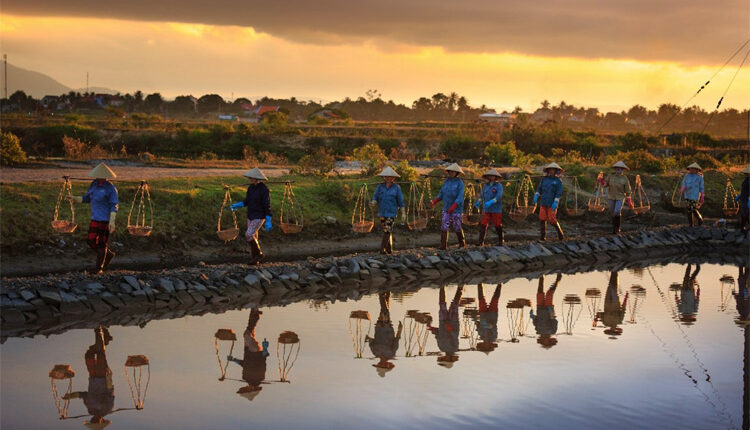Climate Change threatens to worsen poverty, hunger in Asia-Pacific, and stall progress on SDGs warns new report
Global collective climate action is not progressing fast enough to reduce carbon emissions or build the capacity of communities to adapt to impacts of changing weather patterns, says a new report released today.
In the Asia-Pacific region, climate change threatens to worsen hunger and poverty and is undoing gains in sustainable development achieved over recent decades, says the report released by the UN Development Programme (UNDP), UN Economic and Social Commission for Asia and the Pacific (ESCAP), and the Asian Development Bank (ADB).
Titled People and Planet: Addressing the Interlinked Challenges of Climate Change, Poverty and Hunger in Asia and the Pacific, the report focuses on the interlinkages between climate change, poverty and hunger, in the context of multiple global crises affecting the Asia-Pacific region.
It explores integrated solutions and provides recommendations that bring climate action, poverty eradication, and food security together, to enable transformative change.
“Climate change is a defining factor in driving hunger and poverty. The vice-like grip of this climate-hunger-poverty nexus tightens relentlessly around our most vulnerable communities,” said Kanni Wignaraja United Nations Assistant Secretary-General and UNDP’s Regional Director for Asia and the Pacific.
“At UNDP we are fighting against this by supporting people with reskilling on climate-smart agriculture, helping communities build resilience with disaster preparedness and rapid recovery, and creating secure jobs that lift people out of poverty and shield them from further climate shocks,” Ms. Wignaraja added.
ADB Managing Director-General Woochong Um said: “The Asia and Pacific region has made steady progress in increasing food security, reducing the prevalence of malnutrition, and making improvements in health and well-being. However, further gains are being hampered by multiple crises, including the increasing effects of climate change, the lingering impacts of the COVID-19 pandemic, and the cost-of-living crisis.”
The report, notes that more frequent and severe climate-related hazards will result in reduced agricultural and labour productivity, loss of livelihoods, and displacement of people. These strain socio-economic and environmental systems, and hinder efforts to promote food security and alleviate poverty, especially for poorer countries and vulnerable communities.
But there are promising solutions for the Asia and Pacific region that reflect the interlinkages between climate, poverty, and food insecurity. One example is food systems approaches that if designed properly, could support sustainable livelihoods for millions of farmers, ensure food security, and reduce the environmental and climate impacts of food production.
Yet, current global and regional policies do not adequately support the integration of climate priorities with efforts, to address poverty and hunger. There is an urgent need to develop stronger social protection systems for vulnerable people, to help tackle the underlying causes of poverty and food insecurity, and to strengthen their adaptive capacity to the impacts of climate change, the report says.
Other key enabling factors for integrated action are increased knowledge and skills development, institutional capacity building, funding and investment, and multi-stakeholder partnerships. Regional cooperation is especially important, given the speed and scale of needed climate actions.
UNDP’s latest regional Human Development Report identifies climate change as a ‘profound existential threat’ for Asia and the Pacific, with the potential to disrupt decades of progress and burden future generations with the costs of unsustainable economic development.
To counter that it calls for new directions that place an emphasis on mainstreaming human development in national development plans, recalibrating economic growth strategy in the region, and calls upon leaders and governments to be the vanguard of change.
In 2019, UNDP launched the Climate Promise initiative in the lead up to COP26 with the ambitious aim of supporting 100 countries in enhancing their Nationally Determined Contributions (NDCs) to further reduce carbon emissions. Through the pandemic, more than 120 countries around the globe including 21 countries in Asia and the Pacific were supported through the initiative in mapping their pathway to the implementation of the Paris Agreement.

